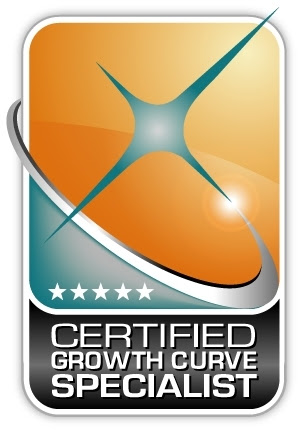 When Alicia Overby took her homemade infant headrests to a national trade show, she wasn’t thinking about sales. She just wanted someone to like her Baby Elephant Ears pillows.
When Alicia Overby took her homemade infant headrests to a national trade show, she wasn’t thinking about sales. She just wanted someone to like her Baby Elephant Ears pillows.
She got both: Baby Elephant Ears charged away from that September 2009 show with more than 500 orders and more pouring in by phone and online.
Less than three years later, Baby Elephant Ears products now are featured in 350 boutiques and baby specialty stores in the United States and a dozen other countries. Sales hit $1.6 million last year and topped $650,000 through June of this year, said Overby, who owns the company with her husband, Scott. She’s the lone full-time employee, with help from two part-timers.
“There was a piece of me wishing that people wouldn’t order, because I didn’t know how I was going to do it,” said Overby, a stay-at-home mom with four children under 4 when she went to that first trade show. “I just wanted them to like it, to validate why I was there. All I had was the samples I brought. I didn’t have any inventory.”
Overby, then a sewing novice, worked all-nighters to fill those orders. A Wisconsin factory that makes chiropractic products now produces the headrests.
More than half of Overby’s sales are international, from such countries as Australia, New Zealand and, more recently, China, Overby said. She spent a week earlier this year meeting retailers in Asia and is in demand to visit other countries.
The product is especially popular in South Korea, where Baby Elephant Ears is seen as a luxury brand prized in part because it is American-made, Overby said.
That also appears to be contributing to a surge in U.S. orders in the first half of 2012, positioning Baby Elephant Ears to benefit from the growing Buy American trend that is seeing more consumers eschew imports and demand products that support the U.S. economy.
Style-conscious moms appear to like Overby’s seasonally updated bright, vivid, fun prints that coordinate with contemporary nursery decor. The price likely adds to the appeal, with the headrests typically retailing for less than $30.
Son was first customer
The product also has proven useful for parents looking for a multi-use headrest that Overby said offers spinal and neck support. Recommended for children up to age 2, the washable pillow goes behind the child’s neck while he or she is in a car seat, stroller or swing, among other locations. It is not intended for crib use.
Overby made the first Baby Elephant Ear headrest for her son Finn, when she found that major retailers didn’t carry the kind of supportive headrest that a chiropractor had recommended for her then colicky 2-month-old. The chiropractor, Overby said, suggested that a pillow that supported the child’s head and neck while he was seated could help relieve discomfort from neck strain that he may have suffered during birth.
Overby continues to attend trade shows in an effort to get Baby Elephant Ears into more stores in this country. She hopes to build Baby Elephant Ears into a wider travel accessory brand with a variety of additional products, including coordinating blankets and a newly released “Tuck and Tidy” bib.
Recently completed renovations to a 150-year-old barn on the family’s property will allow Overby to move her offices and inventory out of her house. The move, she said, will help her maintain a high level of customer service and creates space for additional employees.
Dan Marshall, owner of Peapods, a natural toy and baby care shop in St. Paul, said customers like the fresh, new patterns that Overby uses in Baby Elephant Ears and find the headrest practical as well. The made-in-America factor appeals to customers and to Marshall.
“We get great feedback on it,” Marshall said. “People can tell when something was designed by a mom or dad who saw a need with their own child and went out and made a product that works for them.”
The expert says: Tom Willett, who has counseled Overby through the North Central Minnesota Small Business Development Center based at Central Lakes College, said Baby Elephant Ears’ growth has amazed him.
Willett attributed Overby’s success in part to her willingness to listen to input from others, such as his suggestion to set up an accounting system as she was starting the business. That’s essential for tracking sales and cash flow and making sure the company is profitable.
And while she launched the company without a business plan in place, she did work with him to complete one later, Willett said. Overby’s marketing efforts also have been key, Willet said.
“Alicia’s done a good job there,” he said. “You can have the best product in the world but if you don’t know how to market it, nobody knows it’s out there.”


